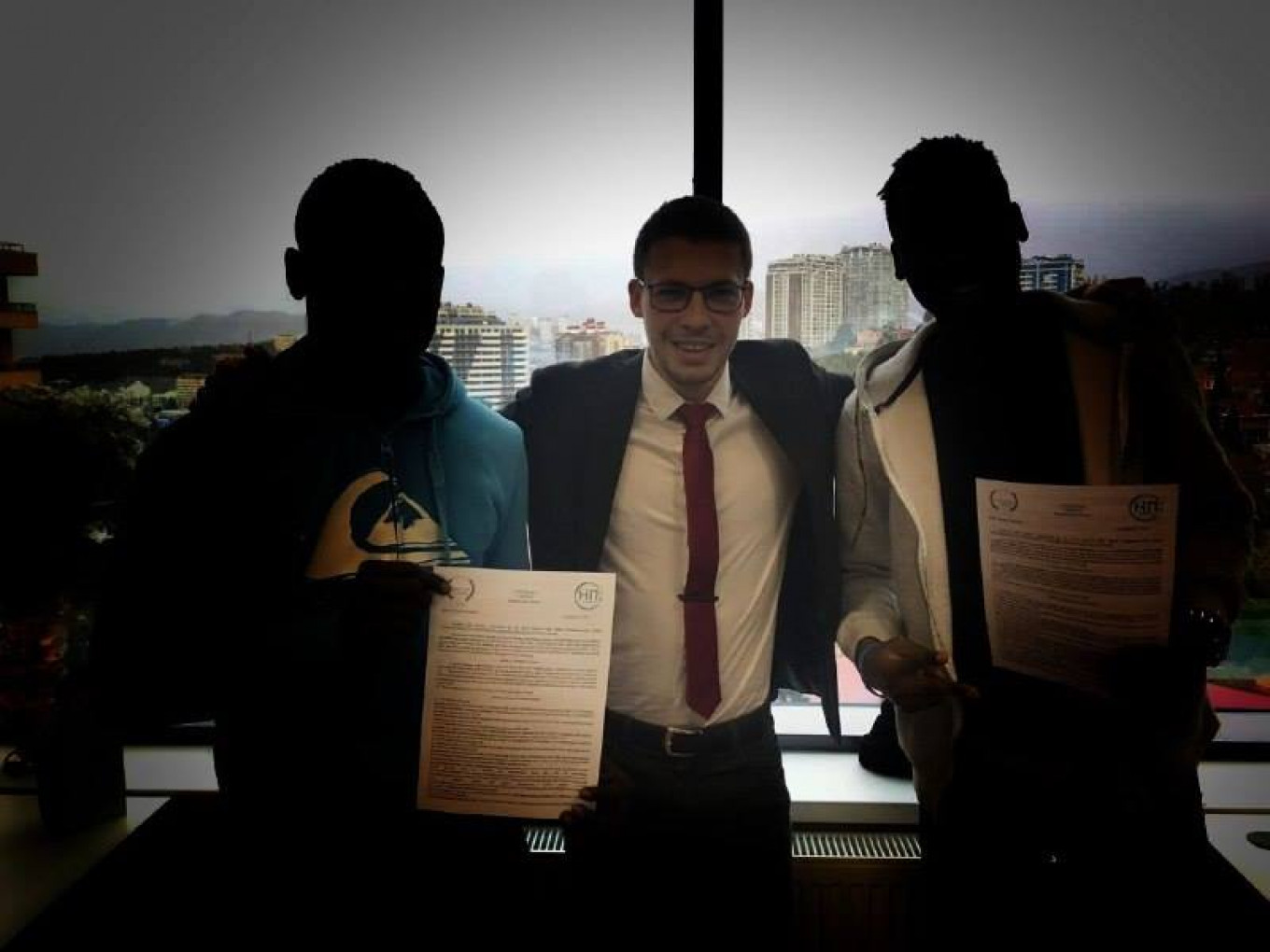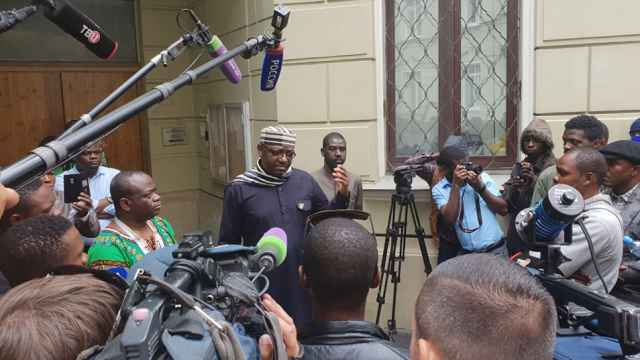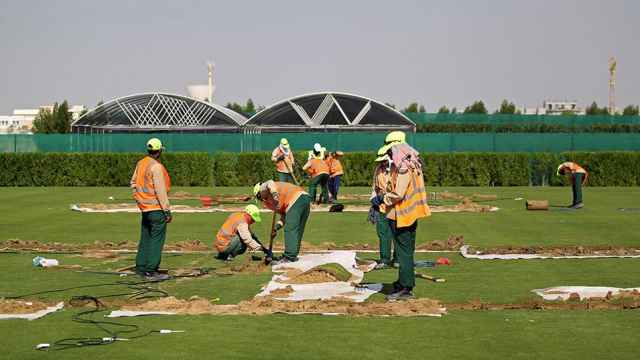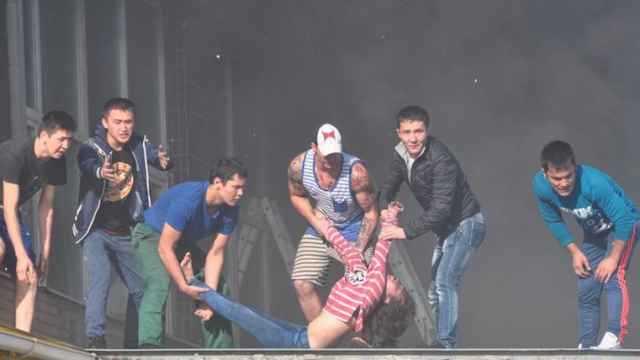A group of budding football players from Nigeria has been stranded in Russia since arriving on a visa-waiver system for the 2018 FIFA World Cup, a Russian anti-slavery NGO has said.
Russian police have said that an estimated 5,500 foreigners who traveled to Russia visa-free for the football tournament have remained in the country since a special visa waiver program expired on Dec. 31, 2018. The Nigerian Embassy in Moscow estimated last July that 200 Nigerian nationals were waiting to be repatriated after falling victim to a scam in which their return tickets were canceled.
More than 10 Nigerian nationals are stranded in the southern Russian city of Sochi after falling victim to a scam, the anti-slavery NGO Alternativa said on Monday.
According to the NGO, the Nigerians had been promised a contract with a local footballing club by a man who had introduced himself as an agent. The man disappeared after receiving a commission of $500 from each of the players, leaving them stranded in southern Russia.
“Their fate remains unclear. If they try to file a statement with the police, they will immediately be detained for violating immigration laws,” Alternativa wrote on its Facebook page.
“Then what’s in store for them is a court hearing, a fine, a special detention center and deportation,” it said.

Alternativa said that Nigeria's consulate in Russia had “listened to their appeal but refused to help.”
“Without their [the consulate's] intervention and sponsorship, I’m afraid there will no other result than deportation,” Yulia Siluyanova, a senior Alternativa staff member, told The Moscow Times.
Some of the men are being housed and fed by sympathetic locals, the NGO said.
Alternativa is a Moscow-based volunteer organization founded in 2011 that helps victims of sexual and economic slavery.
A Message from The Moscow Times:
Dear readers,
We are facing unprecedented challenges. Russia's Prosecutor General's Office has designated The Moscow Times as an "undesirable" organization, criminalizing our work and putting our staff at risk of prosecution. This follows our earlier unjust labeling as a "foreign agent."
These actions are direct attempts to silence independent journalism in Russia. The authorities claim our work "discredits the decisions of the Russian leadership." We see things differently: we strive to provide accurate, unbiased reporting on Russia.
We, the journalists of The Moscow Times, refuse to be silenced. But to continue our work, we need your help.
Your support, no matter how small, makes a world of difference. If you can, please support us monthly starting from just $2. It's quick to set up, and every contribution makes a significant impact.
By supporting The Moscow Times, you're defending open, independent journalism in the face of repression. Thank you for standing with us.
Remind me later.






